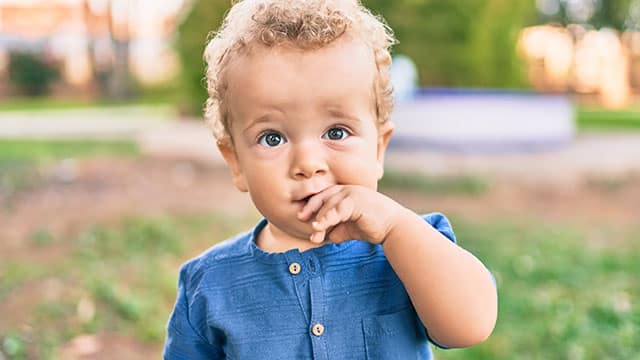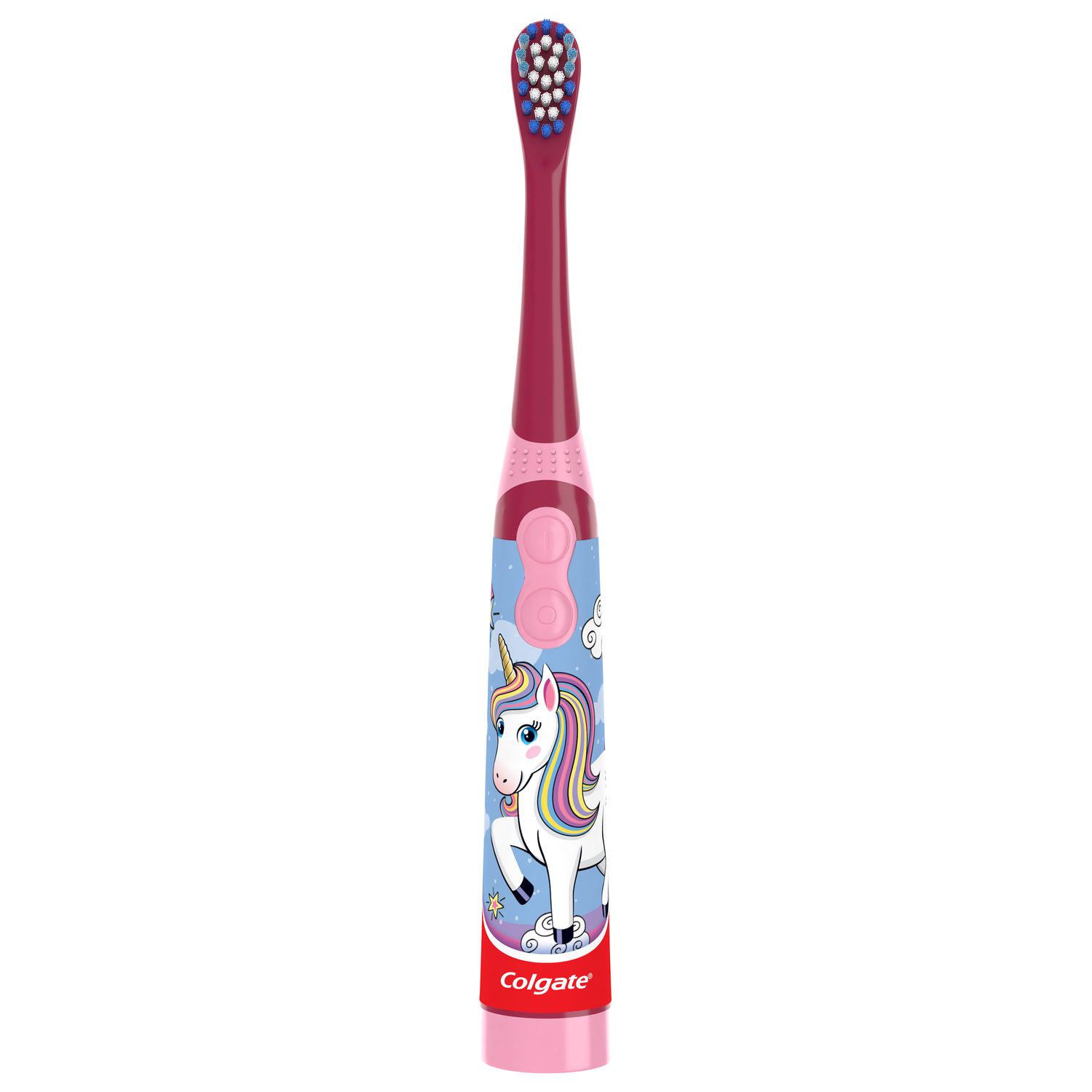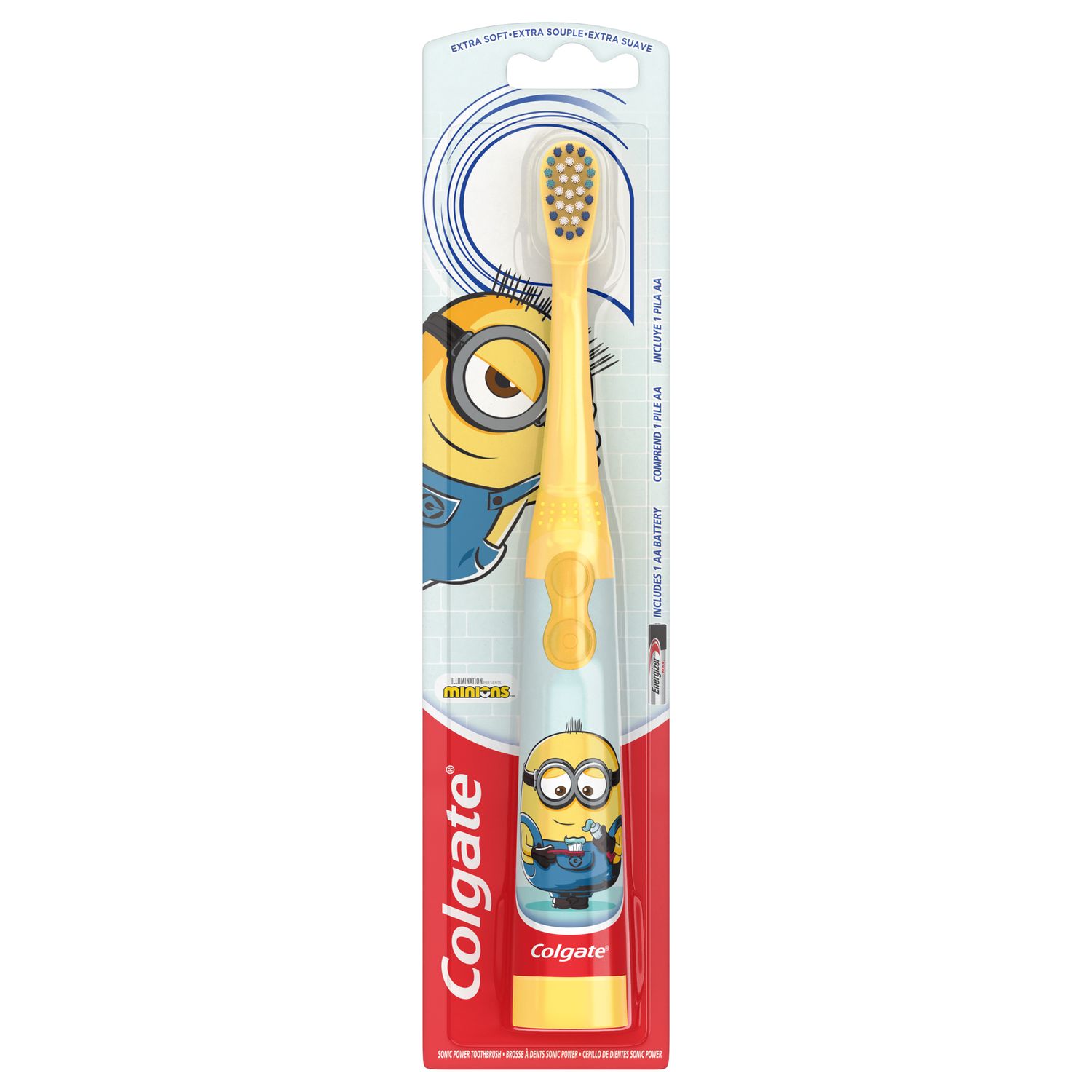So, if teething doesn't cause diarrhea, why does it seem that your little darling's bowels and teeth erupt at the same time? We offer an explanation as well as a way to reduce the chances of diarrhea during teething. Also, we want you to know the best ways to treat the serious problem of children's diarrhea – no matter the cause – so your pint-sized sweetie stays healthy and hydrated.
The Teething-Diarrhea Connections and Solutions
Anything/Everything Connection: Have you noticed that children will put anything and everything in their mouths to ease teething discomfort? Anything within reach. Everything on the floor. So, there's a good chance your little tike bit down or chewed on a bacteria-smothered item lying about. And certain bacteria can cause diarrhea.
Anything/Everything Solution: Ensure that anything and everything that comes close to your child's mouth is germ-free. As parents, that might entail keeping your home's floor spotless and decluttered.
Also, have a few soft, bacteria-free chewing rings available for your teething child – preferably chilled (never frozen).
Immunity Connection: Teething usually occurs when children are between the ages of six months and two-years-old. That's also the age range when many children experience various, completely unrelated ailments or infections that cause diarrhea, fever, or vomiting. The symptoms of those ailments/infections coincide with teething. And your child is more susceptible to medical conditions causing the symptoms due to their underdeveloped immune system.
Immunity Solution: Ways to develop your child's immune system are via breastfeeding, nutrient-rich liquids and sold foods, probiotics, and vaccinations. And with each exposure or illness, your child produces antibodies to build their immunities to viruses or bacterial infections.
Fun Fact: Your baby's immune system is actually stronger immediately after birth than at six months. That's when the newborn still has the benefit of passive immunities received from the mama.
Treating Diarrhea
Since you can't count diarrhea as a teething symptom, ensure you treat your baby for the watery, loose stools as soon as possible. Diarrhea can result from a change in your infant's diet, certain antibiotics, or an underlying medical condition, such as a bacterial or viral infection. An article entitled "Pediatric Dehydration" in the journal StatPearls states that worldwide, "Most cases of dehydration in children are the consequence of acute gastroenteritis."
Whatever the cause, diarrhea can lead to dehydration – perhaps even severe dehydration, resulting in more serious health conditions. So when your teething infant starts experiencing diarrhea, here are some steps you can take:
- Continue to breastfeed or bottle-feed on a regular schedule. Make sure your formula isn't high in sugar.
- If your toddler can eat solid foods, serve food that will help control rather than aggravate the condition, keeping the servings small yet frequent. MedlinePlus.gov, a service of the National Library of Medicine, recommends going beyond the BRAT diet to include protein-rich foods and vegetables.
- Between feedings, hydrate your child with water. If the diarrhea is frequent, add a commercial infant oral electrolyte solution to aid hydration.
- Avoid liquids high in natural or added sugar.
- Change soiled diapers immediately, applying diaper rash cream to keep diarrhea from affecting your baby's backside.
- See your doctor immediately if diarrhea persists.
What about anti-diarrhea medicine? The American Academy of Pediatrics advises against using such medications unless your infant's pediatrician prescribes it.
When to Call the Doctor
You, of course, can call your pediatrician anytime you're concerned about your child. But definitely call the doctor if your infant experiences any of these:
- Severe diarrhea for one day
- Mild to moderate diarrhea for more than two or three days
- Vomiting as well as diarrhea
- Refusal to drink or eat
- Severe stomach pain
- Bloody diarrhea
- Fever of more than 101 degrees Fahrenheit
Make Your Teething Infant Comfortable
You can take steps to provide as much comfort as possible during a bout with diarrhea – or anytime.
Do:
- Hold and rock your little one.
- Provide back rubs, lots of songs, and distractions with toys and books – anything to bring happiness.
- Give your baby a chilled, bacteria-free teething ring or a clean, cold, wet washcloth to chew on when the pain crops up.
- Using an age-appropriate dose, try over-the-counter pain medication to help ease gum inflammation and alleviate teething pain. (You first might ask your pediatrician if the medicine might aggravate diarrhea.)
- Rub your baby's gums with your finger wrapped in clean, soft, cold, wet gauze.
Don't:
- Give your baby a frozen item to chew on because the low temperature can damage developing gums.
- Use whiskey or any other type of alcohol to numb your baby's teething pain. Even a tiny amount of ingested spirits can make your infant sick.
Lots of loving care and attention won't stop diarrhea, but it can soothe and comfort your baby for as long as the condition lasts. While providing comfort, try home treatments to stop diarrhea. If these treatments aren't successful, don't hesitate to call your doctor. Let's ensure your tiny tot becomes a healthy post-teething youngster!
Oral Care Center articles are reviewed by an oral health medical professional. This information is for educational purposes only. This content is not intended to be a substitute for professional medical advice, diagnosis or treatment. Always seek the advice of your dentist, physician or other qualified healthcare provider.
ORAL HEALTH QUIZ
What's behind your smile?
Take our Oral Health assessment to get the most from your oral care routine
ORAL HEALTH QUIZ
What's behind your smile?
Take our Oral Health assessment to get the most from your oral care routine















